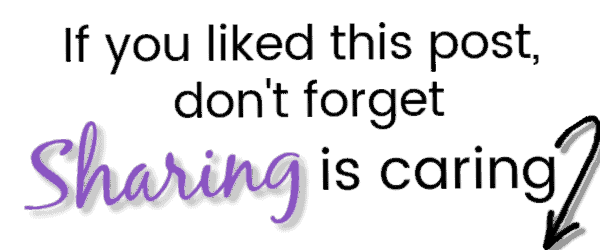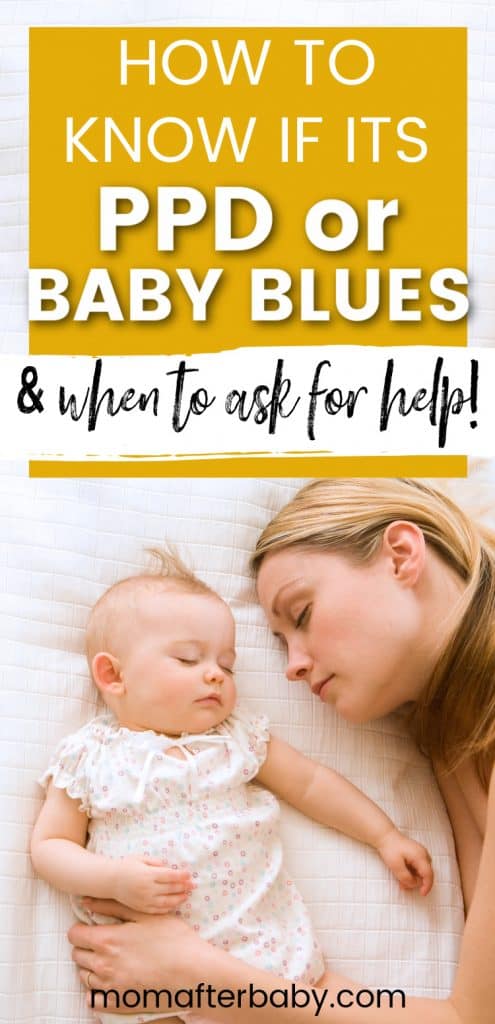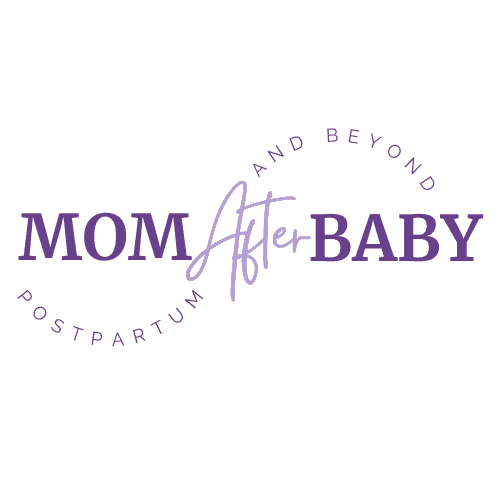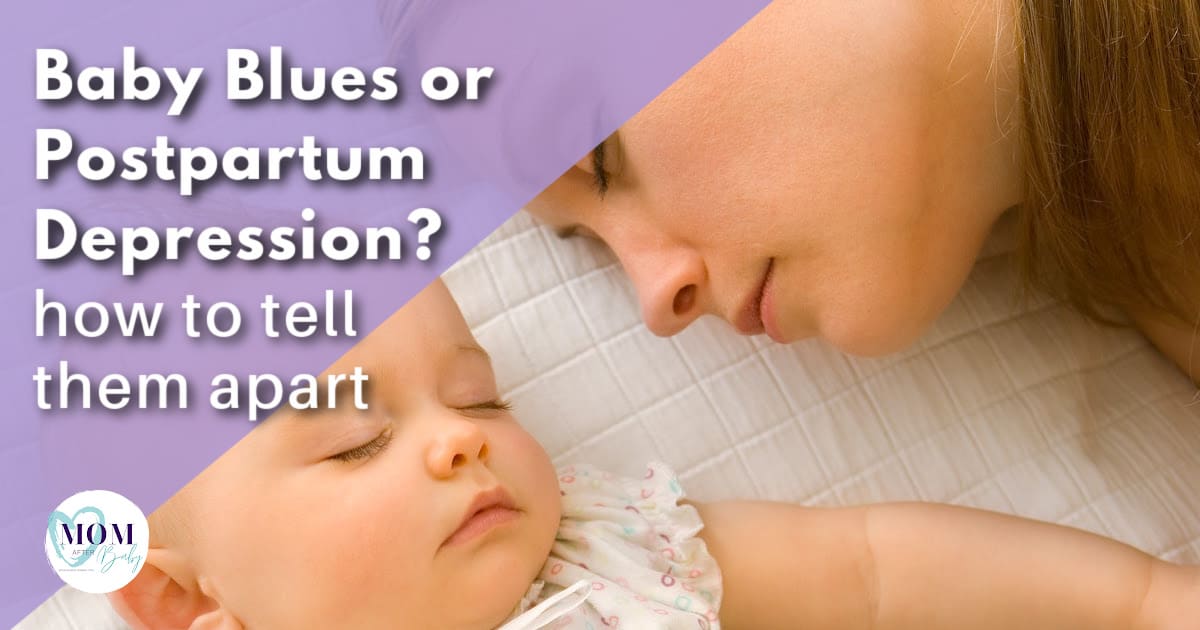Baby Blues or Postpartum Depression – Which is it?
This post may contain affiliate links that I may receive a commission from if you click & buy. In addition, the information on this site is NOT intended to be medical advice. See my full policy for more information.
Today, we’re going to talk about something a bit more serious in the postpartum world that many moms find themselves questioning — Baby Blues or Postpartum Depression.
You see, according to the American Pregnancy Association, “Postpartum depression (PPD) is the most common of the six perinatal mood and anxiety disorders (PMADs) and affects about 1 in 7 new mothers.”
Meanwhile, they also state that “Most new moms experience the normal “Baby Blues” – a few days to two weeks of mild ups and downs, weepiness, and stress.”
But how can you tell which is which?
That’s what this post is about. We’ll also cover some additional questions you may find yourself going back and forth about, such as:
- Is it normal to cry a lot after having a baby?
- How long to postpartum hormones last after giving birth?
- How do I feel better after having a baby?
- Resources for moms struggling with Baby Blues or PPD (postpartum depression).
In fact, to help differentiate the two, we will have a special guest, Abby Burd — a Perinatal Mental Health Therapist joining us to provide even more insight on these two topics. (To learn more about Abby and her work, check out her author profile at the bottom of this post)
Disclaimer – The opinions in this post are not meant to take the place of medical advice. Please seek out medical attention from your provider if needed.
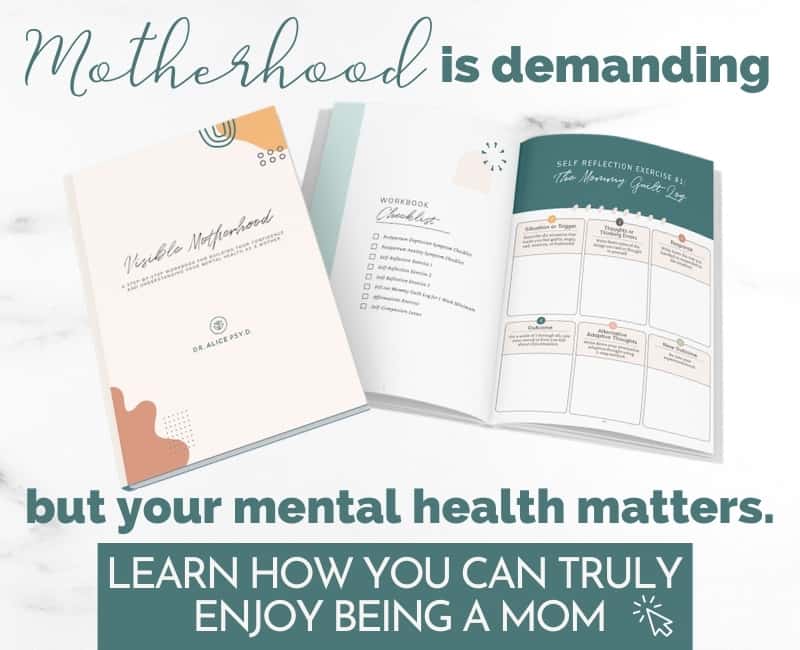
Baby Blues or Postpartum Depression – How do they differ?
What are the baby blues?
Baby blues is a feeling of sadness or mood swings that typically begin a few hours to a few days after birth, lasting up to 2 weeks and going away on their own.
The cause of baby blues seems to be unknown, however some of the symptoms include:
- Irritability
- Sadness
- Crying out of the blue
- Anxiety
- Insomnia
- Mood swings
- Anger
- Frustration
- Increased sensation of being overwhelmed
What is Postpartum Depression?
Postpartum Depression, on the other hand, is an actual medical condition that usually results in needing to speak with your medical provider to come up with a treatment plan (therapy, medication, etc…).
Postpartum Depression is commonly characterized by these symptoms (these are a brief guideline of symptoms and it’s important to note that postpartum depression can look different for each person):
- Sadness
- Anxiety
- Excessive worrying
- Anger/Rage
- Loss of appetite
- Difficulty bonding with baby
- Insomnia
- Feelings of loneliness
- Lack of energy/motivation
However, one of the biggest differences between baby blues and postpartum depression, according to Abby Burd, is that “The baby blues happen soon after birth (typically about four days postpartum), not as severe (some moments of sadness, but overall still feeling happy), and last for less time (less than two weeks.)“.
She also emphasizes that “If your symptoms last longer than two weeks, you should reach out for help. If a mom at any point is having thoughts of suicide, thoughts of hurting her baby or someone else, or noticing dramatic personality changes, she should seek emergency help that day.”
Is it normal to cry a lot after having a baby?
Crying and feeling those hormonal feelings after birth is very common (as you can see above in discussing baby blues). Probably more common than many expect.
However, when you start walking the line of being unable to control those feelings OR they continue to impede on your ability to bond with baby, function normal, do day to day tasks, then it could be a possibility that you’re experiencing Postpartum Depression symptoms.
In that case, no it isn’t “normal” per se and that would be the point to at least mention these feelings to your medical provider if you haven’t already.
How long do postpartum hormones last after giving birth?
After giving birth, estrogen and progesterone hormones tank, while prolactin and oxytocin hormones increase.
These sudden fluctuations of hormones, especially so rapidly can leave us mamas feeling SO out of wack!
Generally speaking, it’s common for most moms to begin feeling more ‘normal’ around that 6 month postpartum mark. However, it’s also important to acknowledge if you’re pumping or breastfeeding, this can also hinder that time frame.
One very important thing to keep in mind, however, is that “Perinatal mood and anxiety disorders (PMADs) can start at ANY point postpartum. Sometimes changes in nursing or weaning can cause a change in hormones and trigger PMADs. Sometimes women have symptoms but don’t reach out for years. So if you have a toddler or older and are wondering if you could have a PMAD, you might!“, says Abby.
How do I feel better after having a baby?
Abby shares that she “loves using the acronym, “GRAPES,” as a self-care checklist. You can read them here: Some GRAPES a Day Keep the Psychiatrist Away: A Self-Care Checklist“.
In addition, trying some of these tips below can help you feel a bit less stressed, more empowered, and overall better:
- Don’t forget to take time for YOURSELF
- Asking for help when you’re overwhelmed (you DON’T have to figure this out on your own)
- Practicing daily affirmations (ex. I AM ENOUGH for my baby, This body deserves love, I cannot be the best for my baby when I’m not the best for myself, etc…)
- Staying active & exercising after having a baby
- Getting out of the house
- Consuming a healthy, well-balanced diet (similar to how you did during your pregnancy).
Is therapy the ONLY option to help moms with PMADs?
“Therapy is a great place to start as a therapist who specializes in perinatal mental health can also help you with other options. Some women with mild PMADs find enough support in treatment groups, support groups, new mom exercise classes, and in finding community. Other options include online courses, like “Prevent Postpartum Depression,” and workbooks. (And yes! I have a workbook on PPD being published this fall.) For severe perinatal mental illness, a reproductive psychiatrist can help with medication. Finally, complementary medicine, such as acupuncture, naturopaths, and traditional Chinese Medicine practitioners can help, too!“, according to Abby.
How can partners be supportive of mom going through a difficult time emotionally after birth?
This was a question I was very eager to ask Abby myself since my husband and I really dealt with some back and forth in this specific area while I was going through postpartum anxiety & some postpartum depression.
From experience, I will say that ANY kind of pre-educating you can do, especially WITH your partner or family, will be SO helpful in dealing with these issues once they arise.
Some really good points Abby brought up was that “This might sound backward, but one thing partners should make sure they are doing is their own self-care. Dads and partners are going through a massive life transition, as well. One in ten men experiences PMADs personally. The biggest risk factor for paternal postpartum depression or anxiety is if the mom is having depression or anxiety. Although more research is needed to document the prevalence of perinatal mood and anxiety disorders in lesbian and trans partners, we believe it may be even higher.“
Did YOU know that men can also experience their own form of paternal postpartum depression or anxiety?! I sure as heck didn’t!
She also shares even more helpful advice which includes “encouraging couples to have a lot of conversations about how they can prioritize each other’s individual mental health, as well as time as a couple [before baby is born]. There is definitely a need for more support to come into the family unit from outside. This is the season of life to accept the help of others”.
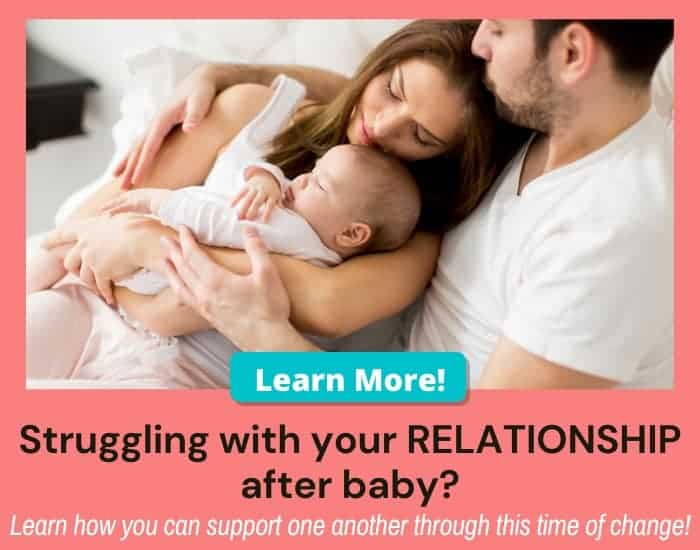
Resources for moms struggling with Baby Blues or PPD (postpartum depression).
Abby was kind enough to provide some fantastic resources for ANY moms struggling with their mental health after baby below:
- Postpartum Support International (PSI) is a great resource!
Visit https://www.postpartum.net to find their warmline, a host of resources on their website, and links to their online support groups.
- Postpartum Support International (PSI) therapist directory at https://psidirectory.com There you can search for a therapist who specializes in perinatal mental health. One way to know that a therapist has specialized training and experience in PMADs is to look for the initials “PMH-C” which indicate they have been certified by PSI.
- For anyone feeling more at-risk, the crisis text line is free and available 24/7, just text “HELLO” to get started.
US and Canada: text 741741 | UK: text 85258 | Ireland: text 086 1800 280
If you’re currently struggling with your mental health, please use the above resources and/or reach out to your provider for help. You do not need to suffer in silence mama!
If you need a place to vent, you can always contact me and I’m happy to be a shoulder to lean on!
Recommended Posts You’ll Also Enjoy:
There you have the key differences between Baby Blues vs. Postpartum Depression!
If this post helped you in any way, don’t forget to SHARE it on your favorite social media page!
About Abby Burd
Burd Psychotherapy and EducationAbby is a perinatal mental health specialist in San Diego, CA, at Burd Psychotherapy. She is a licensed clinical social worker and certified in Perinatal Mental Health (Psychotherapy) by Postpartum Support International. Abby is passionate about the postpartum stage and believes her true authority on the subject comes from becoming a parent to two daughters. Abby is a member of the Postpartum Health Alliance and has served on their executive board. Last year she started an online fourth trimester school and launched the courses, “Prevent Postpartum Depression,” and “Relationships After Baby.” Abigail Burd, MSW, LCSW, BCD, PMH-C, LCS 26867, is a Board Certified Diplomate in Clinical Social Work.
Follow Abby on Instagram @burdtherapy, or on Facebook at “Burd Psychotherapy and Education.”
